How to get published – 6 steps to a traditional publishing deal
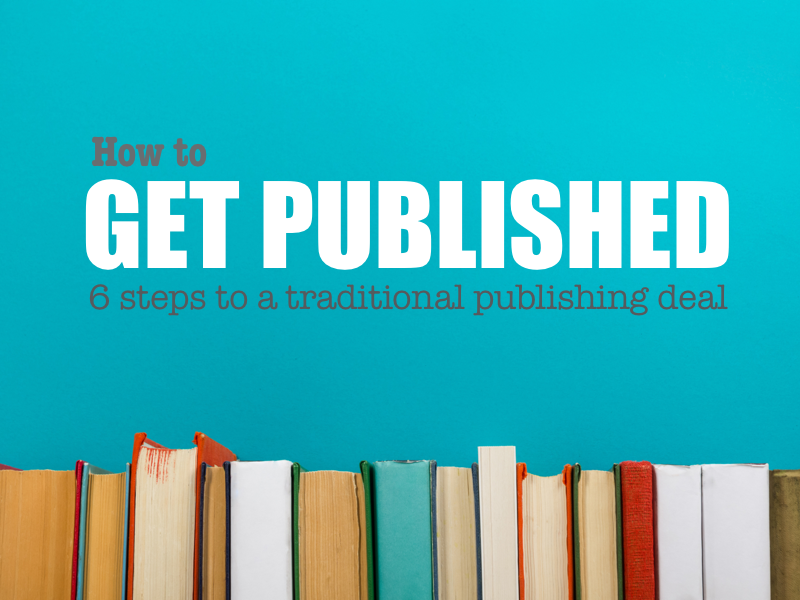
To build a career as an author you need to know how to get published as well as how to write. Jon Reed shares some pointers to help you navigate the process – and know what to expect.
[rt_reading_time label="Reading Time:" postfix="minutes" postfix_singular="minute"]
You’ve written a book. Now what? To take the next step and get published, your main options are to go down the traditional route of getting an agent and landing a publishing deal; or to self-publish. This article focuses on the traditional route to publication, and concentrates mostly on fiction.
How to get published – at a glance:
- Identify your genre
- Showcase your writing
- Find a literary agent
- Prepare your materials
- Submit a query letter
- Get a publishing contract!
1. Identify your genre
What sort of book have you written? (Or are you writing, or do you plan to write?) And which other books is it similar to?
Genre
Your book may not fit neatly into an obvious genre such as science fiction, historical fiction, crime or romance. Your genre may simply be ‘literary fiction.’ Or it may be a combination, such as sci-fi-horror or romantic comedy.
Think carefully about how to categorise your book – because agents, publishers and bookshops will. But do this when you’re preparing to submit to an agent or publisher – not while you’re still writing.
Genre is a sales tool. When your book is finally ready to be read, it will help it find its audience. Genre is something you should be aware of because you will, at some stage, need to explain what yours is to a prospective agent or publisher. You may have a clear idea of this from the start. You may be writing crime fiction because you love crime fiction and it’s what you read all the time. If not, don’t worry about it – yet.
Never try to second guess the market. Don’t write vampire romances or political thrillers just because that’s seems to be what’s selling at the moment. By the time your book comes out, the market will have moved on. And, unless you truly love the genre you’re writing in, you will soon get bored and your lack of enthusiasm will show. Write the book you want to write and you’re more likely to get published.
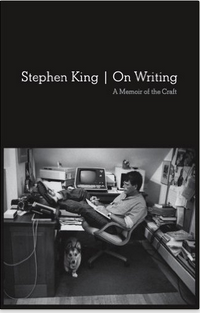 Stephen King, in his classic On Writing, says the time to really ask yourself what your book is about is when you’re writing the second draft. Then, if a theme suggests itself, you may want to enhance it in the re-write. You will also have a clearer idea of the genre your book fits into then, if you haven’t already.
Stephen King, in his classic On Writing, says the time to really ask yourself what your book is about is when you’re writing the second draft. Then, if a theme suggests itself, you may want to enhance it in the re-write. You will also have a clearer idea of the genre your book fits into then, if you haven’t already.
Another thing Stephen King says is read. Make sure you read books in your chosen genre, or books that are similar to what you are writing. Read recent books, especially debut fiction, in your area. This will help you keep up with the ‘competition’ and the latest publishing trends. You can use that knowledge later to demonstrate your market awareness to a prospective agent or publisher – as well as to hone your work.
Comparisons
In addition to genre, think about which books – or even film or TV – your book might be considered similar to. A comparison will help you get published because it will help you pitch your book. It is a shorthand that helps communicate what your book is like – quickly, without anyone actually having to read it. Agents, publishers and readers want this.
- Agents want to be able to say to a publisher: “This author is the next Karl Ove Knausgård,” or “It’s a bit like The Da Vinci Code but set in 16th Century Japan,” or even “It’s Stranger Things meets Adrian Mole.” If you want to get published, think of an “X meets Y” that could describe your book.
- Publishers want a hook to hang your book on. An editor will first need to convince his or her colleagues to publish a book – partly with sales figures of similar titles. And a publisher’s sales rep will want to be able to say to bookshops: “You took X copies of our title Y. This is a similar type of story by an exciting new author.”
- Readers want reassurance that they will enjoy book Y because they enjoyed book X. This what drives Amazon’s “People who bought X also bought Y” algorithm. But you’ll see it in blurbs too. For example, the Amazon.co.uk description for A Man Called Ove says: “Perfect for fans of Rachel Joyce’s The Unlikely Pilgrimage of Harold Fry, Graeme Simsion’s The Rosie Project and David Nicholl’s US.“
None of this means you have to copy someone else’s story or style. Your unique story and individual ‘authorial voice’ is exactly what agents, publishers and readers are looking for. But people in the book trade will always want to compare you to other authors and titles. Publishers always want something the same (because it provides a reassuring track record) but different (because they need something fresh and new to sell).
2. Showcase your writing
If you want to get published, first publish yourself. That might seem odd advice for an article on how to get published traditionally. But I believe building your online platform is an essential first step. Agents and publishers today want to know what ‘platform’ you have – i.e. what audience can you already reach. Start building your platform whether you’re just starting to write, or have a manuscript ready to send out.
Use the following approaches to help you develop your craft as a writer, raise your profile – and, ultimately, get published.
Start a blog
I used to lecture creative writing students on social media marketing – and always advised them to start a blog now, rather than waiting until they got a book deal.
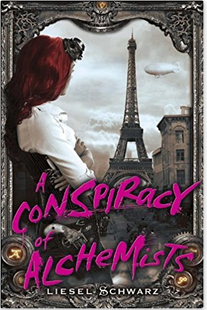 It’s something that paid off with, for example, Leisel Schwarz – who went on to become the ‘High Priestess of British Speampunk.’ Create a well-written blog and it can attract the attention of agents. If nothing else, it proves you can write for an audience.
It’s something that paid off with, for example, Leisel Schwarz – who went on to become the ‘High Priestess of British Speampunk.’ Create a well-written blog and it can attract the attention of agents. If nothing else, it proves you can write for an audience.
A blog can also become a book: Emily Benet’s Shop Girl blog caught the attention of Salt Publishing and became Shop Girl Diaries – and even went on to become a pilot for a sitcom.
It works for non-fiction too – in fact it’s even more important for building authority and an audience in a niche topic area. This blog helped me get published: my first traditionally published book, Get Up to Speed with Online Marketing (Pearson Business, 2010; 2013). If you regularly blog about a subject, your blog could become the starting point for a non-fiction book. A book based on blog posts is often called a ‘blook.’
Write on Wattpad
Wattpad is an online platform that lets you upload stories and read thousands of others for free.
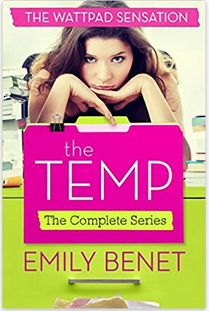 Use it to serialise your work – either something you’ve already written; or something you write as you go, released a chapter at a time, adapting and reacting to readers comments along the way (is one character unexpectedly popular? Build up their part!)
Use it to serialise your work – either something you’ve already written; or something you write as you go, released a chapter at a time, adapting and reacting to readers comments along the way (is one character unexpectedly popular? Build up their part!)
Some authors reach millions of readers on Wattpad. Agents and publishers spot emerging talent on the platform too – and will be impressed by the size of your audience as well as the quality of your writing. Emily Benet wrote a novel called Spray Painted Bananas on Wattpad over four months, posting two chapters a week. She soon got half a million hits and a two-book deal with HarperCollins – who published the novel as The Temp.
Self-publish first
Self-publishing can help you get published traditionally. This is another way publishers talent-spot: by looking for successful self-published authors. The key word here is successful. If you self-publish and don’t sell many copies, that could actually harm your chances of becoming traditionally published. But if your self-published book is a huge success, you’ll have publishers beating a path to your door, and no trouble getting an agent.
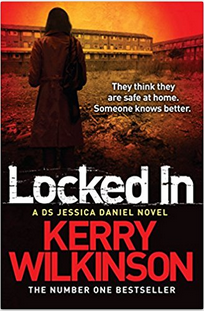 This happened with such self-publishing successes as Amanda Hocking, John Locke and Kerry Wilkinson. Sometimes a publisher will offer you a deal for print-rights only, and let you keep your existing digital rights. A win-win if you only want to self-publish ebooks, but gain a wider reach in bookshops.
This happened with such self-publishing successes as Amanda Hocking, John Locke and Kerry Wilkinson. Sometimes a publisher will offer you a deal for print-rights only, and let you keep your existing digital rights. A win-win if you only want to self-publish ebooks, but gain a wider reach in bookshops.
And there’s no reason you can’t do both: become a ‘hybrid’ author by traditionally publishing some books and self-publishing others, according to what you think is right for each book. Nick Spalding and Emily Benet are examples of authors who take this approach.
Write short stories
Show that you’re serious, develop your craft and get a publication credit in the process by writing short stories. Many novelists started out by writing short stories for magazines. While the market for short stories may be smaller than it once was, there are still plenty of outlets to submit to. You won’t necessarily earn much money – but you will get published. You’ll gain a writing credit for each story published, and build your writing resumé / CV.
One way to earn money from writing short stories is to enter competitions – and win them! Here are 15 short story competitions to enter to get you started.
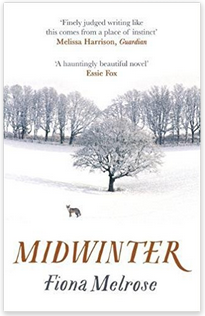 If this all seems a distraction from the novel you want to write, remember that a short story can become the first chapter of a novel. This happened with Fiona Melrose: her short story The Fox was broadcast on BBC Radio 4 as one of the winners of their 2014 Opening Lines competition, and helped her get published. It became the starting point for her first novel Midwinter, which was published in paperback in September 2017.
If this all seems a distraction from the novel you want to write, remember that a short story can become the first chapter of a novel. This happened with Fiona Melrose: her short story The Fox was broadcast on BBC Radio 4 as one of the winners of their 2014 Opening Lines competition, and helped her get published. It became the starting point for her first novel Midwinter, which was published in paperback in September 2017.
Use any short stories you get published – especially if they win an award – in your submission to agents as evidence of your ability to write, and increase your chances of getting an agent. List them in your query letter (see Step 5) – but don’t send them unless you’re asked.
See also:
- 10 ways to win with WordPress – by Jon Reed
- Emily Benet’s blog-to-book-to-sitcom success story – by Jon Reed
- How to use Wattpad to get a book deal – by Emily Bennet
3. Find a literary agent
Most publishers will only accept submissions via a literary agent. So, in order to get published, your goal is to get an agent, rather than a publisher. Your agent will submit your work to publishers on your behalf. And there are many other benefits to having an agent. They will:
- Know the market
- Have the right connections in the publishing world, and know who to approach
- Get the best deal for you
- Handle contract negotiations on your behalf
- Manage your rights. You will retain your rights to e.g. film and these can be sold separately. If you sign a contract with a publisher without having an agent, your publisher will usually also own film and TV rights, and you’ll only get 50% of any proceeds.
- Handle media requests for you, including invitations to write press articles
- Take a fee of around 10-15% of your earnings. This is a good thing. Because their fee is based on your earnings, there’s an in-built incentive for them to get you the best possible deals – and you’ll end up earning far more with an agent than without one.
Some (but not all) agents also offer editorial support. They will critique your work and offer feedback, to help you get your final draft into the best shape before submitting to your publisher. Some even have in-house editorial staff to do this. If this is important to you, find an agent who will support you in this way – but don’t automatically expect it.
Research agents to find one you think will be a good fit for you and your book, and who you’d like to represent you. Then prepare your submission materials, as set out in Step 4.
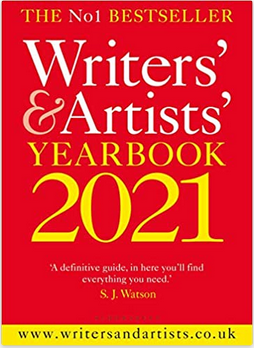 Start with one of the directories of agents and publishers. The main ones are Writer’s Market (USA) and Writers’ & Artists’ Yearbook (UK). (Publishing Talk members get a 25% discount on the Writers’ & Artists’ Yearbook.)
Start with one of the directories of agents and publishers. The main ones are Writer’s Market (USA) and Writers’ & Artists’ Yearbook (UK). (Publishing Talk members get a 25% discount on the Writers’ & Artists’ Yearbook.)
These are invaluable reference books for when you’re ready to approach agents, and include details of each agent’s submission policy and what sort of books they’re looking for. Take a look at agents’ websites too, to see who they already represent.
Pick the right agent for you and your book. You might want an agent with the backing of a large organisation. Or you may prefer a small independent agent with lots of time to invest in you. Or you might aim for the best of both worlds with a new agent in an established agency who is starting to grow his or her own list of clients. You might want an agent who will offer lots of constructive feedback on drafts and help you develop as a writer; or you might not be bothered about that and just want one who can get you the biggest advance.
But don’t approach anyone yet: prepare your materials first.
See also:
- How to get a literary agent – 7 steps to success – by Jon Reed
- Backdoor routes to getting a literary agent – by Kirsty McLachlan
- 7 ways to increase your chances of being taken on by a literary agent – by Andrew Lownie
4. Prepare your materials
You will soon start preparing your query letter (see Step 5 below). But not yet. Work on your supporting material first: your synopsis and sample chapters. Together these might be called your book proposal. They are the essential documents you need to get published.
Because you need more than a letter. If an agent is to assess whether you have potential as a writer, have something they can sell to publishers, and if you might be a good fit with their list, you’ll also need to send them your stuff. You won’t necessarily send this with your query letter (this depends on each agent’s submission policy); but even if you just send a query letter first, you’ll need to have the following material pre-prepared in case the agent is interested and wants to see more.
Synopsis
I’m more used to writing synopses and treatments for screenplays. But the same principles apply. Write out everything that happens in your novel, in the order in which it happens, in the present tense. Keep it to no more than two pages, and don’t hold anything back – let us know how your story ends! You may have intriguing twists, turns and reveals in your novel that you want to hold back from the reader – but don’t do this with your agent or publisher. This is no time to be worrying about spoilers: they need to know everything that happens.
You can still build tension in the way you write your synopsis, and keep the reader intrigued. Do this by only revealing plot points at the correct time in your synopsis. So don’t say: ‘…and he later turns out to be the killer all along’ in your opening paragraph. Save that information until the part of the story when it is revealed to the reader. Then your synopsis can be as engaging and satisfying as the full book.
Sample chapters
The purpose of your sample chapters is to flesh out some of your synopsis and, importantly, to demonstrate your writing style. An agent wants to see that you can write – or at least have potential. A couple of sample chapters is usually sufficient.
However, while a synopsis + 2 sample chapters may be typical, it’s not what every agent wants. The research you did in Step 3 will reveal not only which agents might be suitable to submit to, but what they want you to submit. Some might want one chapter, or 10,000 words. Some might want to see the whole thing.
There is a bit of a trend for agents wanting to see the entire manuscript upfront. Indeed, many articles advise that, if you want to get published, don’t approach agents until you have written a full manuscript to the best of your ability. But this isn’t always the case. Most of the debut authors I’ve known over the last few years got a publishing deal on the strength of a writing sample, not a whole manuscript. And the point of an advance is, after all, partly to give you time to write your book once an agreement to publish it has been reached. But if you want to wait until you’ve written most of your book before seeking an agent, that’s fine too. Sometimes you want the time and space to do just that, and to work out what your book is really about before you think about publication.
See also:
- How to write a winning book proposal – by Sarah Such
5. Submit a query letter
A query letter is a one-page sales letter that you send to a literary agent to pitch your book and ask them if they would be interested in representing you. The ‘query’ is, essentially: “Will you be my agent?” And the ‘letter’ isn’t necessarily a physical one. These days it’s more likely to be an email – but check the submissions policy of each agent you approach.
Approach literary agents with a query letter only once you’ve prepared your synopsis and sample material – even if you don’t send this with your letter. If they ask for it, you need to have it to hand. Some agents will want your query letter to be a covering letter that you send with your book proposal. Some will want it as an email with attachments.
A query letter is a form of cold calling, or like sending a speculative job application to a company you’d like to work for. You’ve researched names of agents and checked their submission requirements. You might be sending out several. But be sure to personalise each letter: use the agent’s name (spelled correctly!) and include a short paragraph about why you’ve chosen to approach this particular agent.
You should also include an enticing paragraph of blurb ‘selling’ your book, a bit about yourself and any writing credits you have (such as published short stories), and something on your ‘platform’ – i.e. your existing (online) audience, if you have one.
If you’re in the fortunate position of already knowing some agents – perhaps from having met them at writers’ conferences or other book events, or through author friends – you might not need a query letter as such. You might be able to briefly explain what your book is about in person (always have a pitch prepared!) Then, if the agent thinks it sounds interesting, arrange a meeting.
You’ll still need to prepare your synopsis and sample chapters to send on in advance – and a covering note sumarising the key points and reminding the agent how you met. But it’s a warmer approach than a letter out the blue, and a route by which many authors get published.
Can I query multiple agents?
Yes, absolutely. It may take three months for an agent to reply to you – you can’t wait around that long. Draw up a list of agents you want to submit to – including those you’ve met at events – and send out queries to up to six of them. This will help you guage responses. If you get no requests for further material, your query letter needs work before you send it out again!
What happens next?
You’ll likely get one of these responses to your query letter:
- A rejection
- No response at all (usually also a rejection)
- A request for some sample material
- A request to see the whole manuscript (if available).
The last two of these responses may subsequently also result in a rejection. Don’t give up. Sometimes an agent will reject you simply because their list is full. Or they might think your book isn’t the type of book they can sell to publishers. You might get some feedback on your submission. More often you’ll get a standard rejection slip. Don’t take offence – agents are busy people and get a lot of submissions. If you hear nothing, follow up with a polite note after 6-8 weeks.
If you get several requests to see sample material but then get rejections, it’s your writing that needs work rather than your query letter. Seek more feedback – maybe by joining a writing group. Re-work it and re-send it.
However, if an agent is interested in you and your book, the next step is a meeting with them to discuss it. And then, possibly, an offer of representation.
What happens when I get an offer?
Congratulations! Getting an agent is, understandably, the most exciting step for many aspiring authors. Finally the doors to the publishing industry have been thrown open to you – big advances, bestseller lists and literary prizes await!
Well, maybe. But don’t get carried away just yet. And don’t let your head be turned by the first agent who offers to represent you. Landing an agent is, understandably, seen as the Holy Grail by many an aspiring author. It’s easy to get carried away with excitement and gratitude and accept an offer – any offer – from the first person who shows an interest in you.
Don’t underestimate your value as a new writer. Debut fiction is very saleable! If you have more than one expression of interest, weigh up the pros and cons of each, ask questions, and be honest with yourself about what’s important to you. Crucially, do you get on with this person? So much of the publishing industry is based on personal relationships – and the author-agent one is a critical one.
Keep it professional, make sure your prospective new agent is the right agent for you – and your book. Meet your prospective new agent. Be prepared to talk about your writing – and what books you like reading – but also ask questions. Ask about how they work with clients (do they offer editorial support or are they more of a deal-maker?), which books they’ve done well with – and what their terms are.
Don’t let yourself be pushed in a radically different direction, if that’s not what you want. Occasionally you might pitch your book to an agent, but find that they want you to write something very different. They may like your style, but think that another type of novel is more saleable. An agent may sometimes even have a specific project in mind that they’re looking to get published – and are looking for someone to write it. Tread carefully. The agent may be right – they know the market, after all. But it’s your book – and you must write the book that you want to write.
The best agents will not only help you get published, they will manage your career, help you develop as a writer, and think about your long-term potential as an author. Ideally, this will be a long-term working relationship – so pick one you think you can work with. It is possible (and sometimes desirable) to switch agents later – though it’s a bit awkward and can get a bit messy with the rights in your earlier books. So it pays to spend a bit of time and effort into making the right match – for both of you.
Once you accept an offer, the next stage is to sign an agreement with your new agent – and for them to start working for you!
See also:
- How to choose an agent – which of these 7 types is right for you? – by Kirsty McLachlan
6. Get a publishing contract
As a newly-minted author, you will quickly become used to legal paperwork. There are two main contracts to be aware of:
- An agency agreement – this is a contract between you and your agent, setting out their terms (their fee is usually around 10-15% of your earnings). Always ask for a formal, written agreement. And don’t be shy about asking what your prospective new agent’s terms are when you’re looking for representation.
- A publishing contract – your agent will handle this, and negotiate the best deal, in discussion with you.
There will be other contracts – but your agent can advise on them all. A key one is an Option Agreement, which is when a film or TV production company buys the rights to adapt your book.
But the key one, in terms of how you’ll get published, is the publishing contract. Now that you have an agent, it’s his or her job to get you one of these. Your agent will try to ‘place’ your book – i.e. sell it to a publisher. The basis for this sale will be the materials you submitted earlier (probably with a bit of reworking), plus a formal pitch from the agent, which will include some information about the market and commercial potential of your book.
This to can be a lengthy process. Don’t become disheartened. Remember that JK Rowling was rejected by 12 publishers before Harry Potter was placed with Bloomsbury. She was subsequently also rejected as Robert Galbraith.
When a publisher makes an offer your agent will handle the contact negotiation. If more than one makes an offer, you may even get into a bidding war. The highest bidder isn’t necessarily the best place for your book – though a big advance is an incentive for the publisher to get behind the book with some marketing effort in order to recoup their money!
You should also take into consideration what editorial support the publisher will give you, how much marketing they will do – and how much they will expect you to do – and how well they are likely to do with it based on previous books. The offer may be for multiple books – such as a ‘three book deal’ – tying you into that publisher for years. Your agent can advise on the pros and cons and make recommendations.
What do I get paid?
Publishing advances vary wildly. Big advances are the exception, and it’s not easy to earn a living as a full-time writer. You might get anything from low four figures for a niche publication with a small publisher, or up to six figures from a big publisher who thinks your book has major commercial potential.
Remember that an advance is literally an advance on royalties. It is an advance payment against money that your book will subsequently (hopefully) earn in the future once you get published. You will get a royalty statement from your publisher once or twice a year, which your agent can help you understand. Only when your royalty account has earned out your advance will you earn additional income from royalties. If your book doesn’t recoup the advance, it is usually not refundable, so long as you have met your contractual obligations.
Royalties are set at a percentage (e.g. 10%) of either:
- Net receipts – the net income the publisher receives from booksellers, who but their stock at a discount
- Published price – a percentage of the retail price of the book.
Net receipts is far more common these days, especially given today’s high bookseller discounts. A bookseller discount might be set at 35% for a small independent bookshop, up to 60%, 70% or more for a big chain, supermarket or online retailer. Each is the subject of a negotiation between publisher and bookseller.
When do I get paid?
Your payments will usually be staged. You’re likely to get something on signature of the contract with the publisher, something on delivery and acceptance of your final manuscript, and something on publication. And that might apply to three books. So if a publisher offers you an advance of £100,000 for three books, don’t expect it all at once: it might be split into nine payments!
See also:
- 5 things you need to know about agency agreements – by Kirsty McLachlan
If you want to get published, get educated!
If you want to get published, it pays to learn not only about the craft of writing, but as much as you can about the pubishing industry. Arm yourself with knowledge. Read blogs, read books, listen to podcasts, subscribe to trade magazines, go on courses or attend events. Maximise your opportunities to meet people who can further your career – whether they’re authors, agents or publishers.
The Publishing Talk Masterclasses are a great place to start. They’re available online, wherever you are in the world. We also hope to run our ‘How to Get Published’ conference again. Sign up to our Newsletter to be the first to hear about these events.
Your hard work will pay off. Once it has, and you’ve landed your first publishing deal, enjoy the moment. As soon as your first book publishes, the pressure will be on to publish your next!
This post first appeared on this blog on 20 Nov 2017, and is periodically updated.



Pingback: 5 Things You Should Take into Account When Looking for a Publisher!
I need to find out how to go about publishing a book of short stories.I have self published 3 books of poetry but not being able to afford to market it it hasn’t gone very far. I could probably re write the poems and some short stories and publish again. I need to know how I go about it.When I published before it was send through E mail but that may have changed sinceI published it years ago.
This was VERY helpful. I’m a high school language teacher currently writing a novel- something I’ve never done before, but I have some predictions for the future that I feel compelled to share. This article really helped me understand what the process could look like for me to get a book published. The piece of advice about second drafts from Stephen King gave me quite a sense of relief. Thank you!